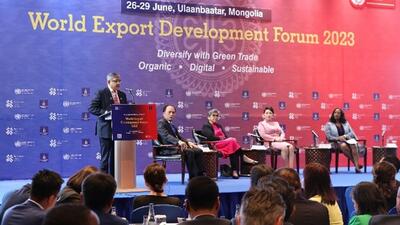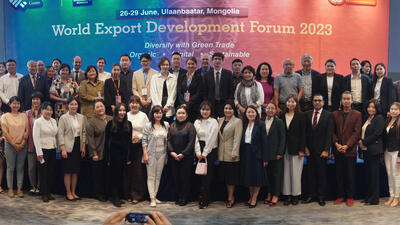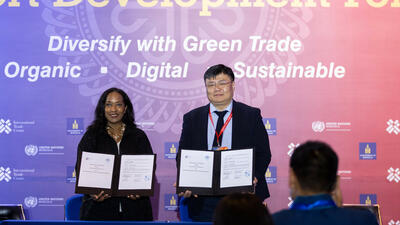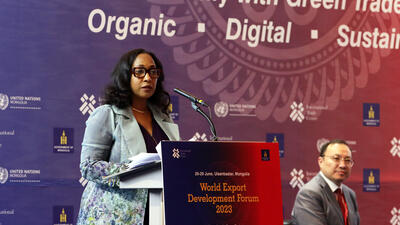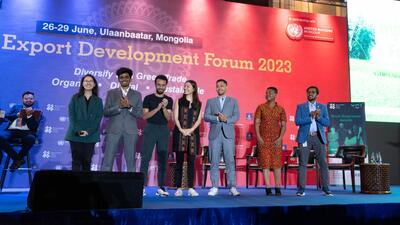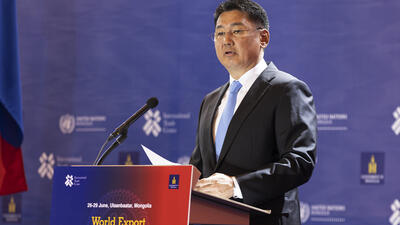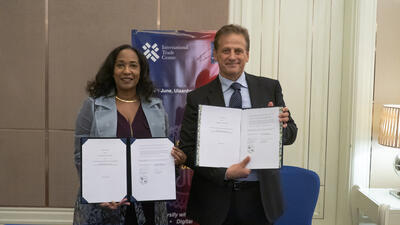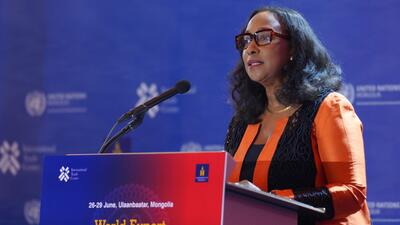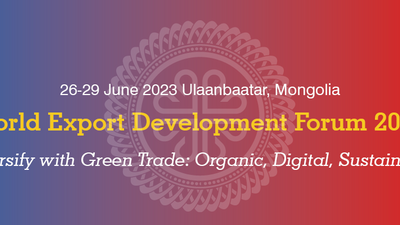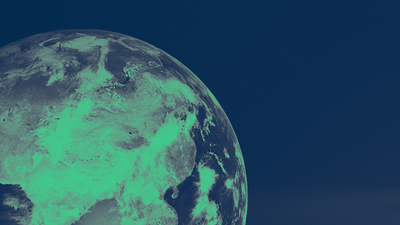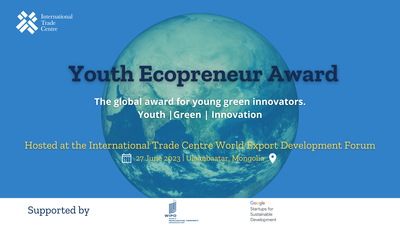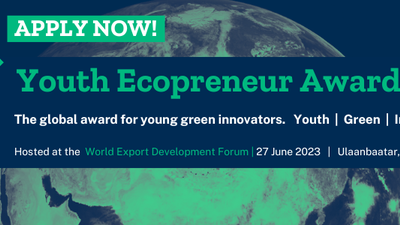
ITC Executive Director opening remarks at the World Export Development Forum (WEDF), Ulaan Bataar, Mongolia
Your Excellency, President of Mongolia, Khurelsukh Ukhnaa,
Mr Claudia Viezzoli, Managing Director at the European Bank for Reconstruction and Development,
My dear friend Rabab Fatima, USG OHRLLS,
Distinguished guests, ladies and gentlemen,
It gives me great pleasure to welcome you on ITC’s behalf to the World Export Development Forum 2023 – right here in the beautiful city of in Ulaanbaatar.
This is, of course, a very special day for the whole ITC family, from our own staff to our external partners. Today we celebrate MSME Day, dedicated to the Micro-, Small, and Medium-sized Enterprises that are the foundation of our work. So, right at the outset, let me take a moment to recognize the contributions of businesses actors, entrepreneurs and workers in creating a global trading system that supports the Sustainable Development Goals.
This is my first time in Mongolia and like the whole ITC team, I am really excited to be here. I have to be honest: as a Jamaican, growing a short distance from the warm waters of the Caribbean, I didn’t get much teaching in school about Mongolia and its incredible culture and rich history.
I did however learn about Genghis Khan and the great Mongolian empires of the past. Mongolia’s many contributions to the Eurasian civilization that flourished along the Silk Road. How the so-called “Pax Mongolica” facilitated trade in goods and people from the Pacific Ocean to Eastern Europe.
It’s so appropriate then that we are here today in Ulaanbaatar to open ITC’s first WEDF since 2019.
I’ll never forget the launch event we had at ITC a few months ago. The sounds and sights of traditional Mongolian music and dancing. The haunting melodies of the overtone singing, accompanied by the horsehair fiddle. Mongolia has sets a very, very high bar for the next host country!
I could not imagine a more meaningful way to celebrate MSME Day than right here, in a country that helped to shape global trade. I want to thank the Government of Mongolia for their engagement, collaboration and excellent partnership as host of WEDF 2023.
I want to specially thank the members of the joint ITC / Government of Mongolia task force that worked so hard over the past few months – across several time zones and within a very challenging global context – to make this week’s event a reality.
Let me tell you today why this event is important, what’s going to happen and what we hope comes out of this important WEDF.
As I hinted above, it hasn’t been an easy time for either the global economy or global trade since our last WEDF. Nearly every aspect of daily life has been upended by the “four Cs” of COVID, climate change, conflict and cost-of-living. A historically unprecedented coming together of four crises that has turned many indicators of sustainable development into reverse, including further delaying the achievement of gender equality by a half-century.
These four Cs have massively impacted ITC’s clients. Their governments, their ecosystems, their supply chains, their societies. MSMEs – particularly in our priority countries – have really struggled to survive.
That’s why events like WEDF are so important. We are here to bring the international trade and development communities together to – as the theme suggests – “diversify with green trade”.
What makes this conference different from others is that it brings policymakers and businesses together to discuss practical solutions to global trade challenges, with development at the forefront. As our usual WEDF tagline says, we’re here to do business, talk trade and drive development.
At a time of crisis, governments and the private sector cannot afford anything else. We all need to be practical and focused on solutions. This is not a time for – as Greta Thunberg calls is – the usual “blah blah blah”. We need concrete action to make global trade more inclusive, more sustainable and more connected.
So let me focus then on the event itself and the sort of outcomes we hope to generate from this great global gathering.
At WEDF 2023, we’ll do five things.
First, we’re going to empower small business, youth and women.
We cannot create a better global trading system without greater inclusivity. MSMEs, after all, comprise 90 percent of all firms and a large share of economic activity in almost every country in the world. They are the silent majority of global trade. By ensuring that small, women- and youth-led businesses are at the forefront of WEDF, we’re building a stronger foundation for greater resilience.
That’s why, this afternoon, we’ll be looking at how to scale up youth entrepreneurship as well as holding our Youth Ecopreneurs “green pitch” contest. It’s a chance for lucky ecopreneurs to win seed funding and dedicated support from tech giants such as Google. Best wishes to this year’s finalists from Bangladesh, Egypt, Ghana, India, Indonesia, Madagascar and Mongolia. I hope to see you all for the closing ceremony tomorrow where we unveil the name of the pitch contest winners.
Tomorrow, we will also launch the Mongolia SheTrades Hub, followed by a dedicated panel on women in trade. SheTrades is ITC’s flagship initiative on women’s economic empowerment. We have more than a dozen SheTrades Hubs across the world. These Hubs provide practical training to women and create a more business-friendly environment for them by strengthening institutions and gender-intentional policymaking.
I’m proud to inaugurate a new hub in Mongolia and I thank again the Government of Mongolia and the Mongolian National Chamber of Commerce and Industry for their collaboration and support to women’s entrepreneurship – bringing women-owned businesses right here in Mongolia to the next level of trade competitiveness, diversification and inclusive growth.
Second, we’re going to build green and digitally connected routes to trade.
We are living through the green and digital revolution. The global push for sustainability, coupled with the dizzying rate of technological change, is transforming every aspect of global trade. It’s creating new opportunities for MSMEs across the world. It’s helping them level the playing field with bigger firms.
But only if we are all able to make a clear business case for MSMEs to make the transition. Firms that aren’t online, or climate-proofed, or ready to meet new green market requirements in Europe and elsewhere: these firms will not survive the coming decades.
Right after this opening event and a networking break, we’ll hear from the private sector about their experiences with our core theme of diversifying through green and digital. Tomorrow, we’ll have a dedicated discussion on the trade trends transforming our work through digital and AI, plus great panels on digital transformation and green trade.
We’ll hear in detail how to accelerate the green and digital transition for MSMEs, identify what types of partnerships are needed to bring resources, and how to craft accompanying measures to support developing countries.
Third, we will create business enabling ecosystems.
Sixty years of work have taught ITC that without ecosystems, nothing can flourish. Public and private business support institutions, banks, academia and training institutions must act together to give companies the services they need to succeed in regional and international markets.
That’s why ecosystem building is a major topic at this year’s WEDF. Tomorrow, you’ll be hearing stories about how business associations and chambers of commerce power local innovation. You’ll be invited to a dedicated discussion on access to finance – looking at how tools like blended finance and impact investment can help MSMEs find new paths to market.
Fourth, we’re going to elevate the voices of landlocked countries in the global trade discussion.
Yesterday, we had our business talks session with the private sector of landlocked developing countries.
I’m really proud of the fact that ITC could help our colleagues in OHRLLS bring the voice of the private sector into the upcoming LLDC conference in Kigali. What better platform for these voices than Mongolia as the second largest landlocked country in the world.
Fifth, and finally, we’ll do business through dedicated B2B sessions.
As I said previously, at WEDF we don’t just “talk business”, we “do business”. That’s why more than 130 companies are taking part in our B2B matchmaking sessions. From yesterday onwards, you’ll see business conversations in the margins of our plenary meetings, covering sectors such as ICT, natural fibres and leather.
Let me close by calling on everyone to use WEDF 2023 – today on MSME Day – to set a new agenda for small business in global trade.
To reshape the world of trade into one that is more inclusive, sustainable and connected. To challenge deeply rooted systems and supply chains that perpetuate inequalities between and within countries. To prioritize people and planet, alongside – not instead of – profit.
Next year, ITC will celebrate its 60th anniversary. For almost 60 years, we have worked and partnered with countries and business communities across the world – including in LLDCs – to make trade work for the SDGs.
Alongside partners like Mongolia – engaged for a sustainable future, in defence of multilateralism, shaping a world of cooperation and friendship – it gives me great pleasure to declare this 20th edition of the World Economic Forum in Mongolia, officially open.




